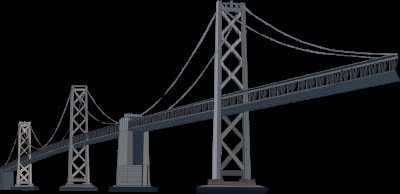bridge
US /brɪdʒ/
UK /brɪdʒ/

명사
1.
2.
코등, 콧대
the upper bony part of the nose
예시:
•
She wears her glasses on the bridge of her nose.
그녀는 코등에 안경을 쓴다.
•
He broke the bridge of his nose in the accident.
그는 사고로 코등이 부러졌다.
3.
연결, 다리
a connecting or transitional passage or link
예시:
•
The program aims to bridge the gap between theory and practice.
이 프로그램은 이론과 실제 사이의 간극을 메우는 것을 목표로 한다.
•
Music can act as a bridge between different cultures.
음악은 다른 문화들 사이의 다리 역할을 할 수 있다.
동사
1.
2.
메우다, 줄이다
to reduce or get rid of the difference between two things or groups of things
예시:
•
The new policy aims to bridge the economic divide.
새로운 정책은 경제적 격차를 해소하는 것을 목표로 한다.
•
Her research helped to bridge the gap between different scientific fields.
그녀의 연구는 다른 과학 분야들 사이의 간극을 메우는 데 도움이 되었다.
Lingoland에서 이 단어 학습하기